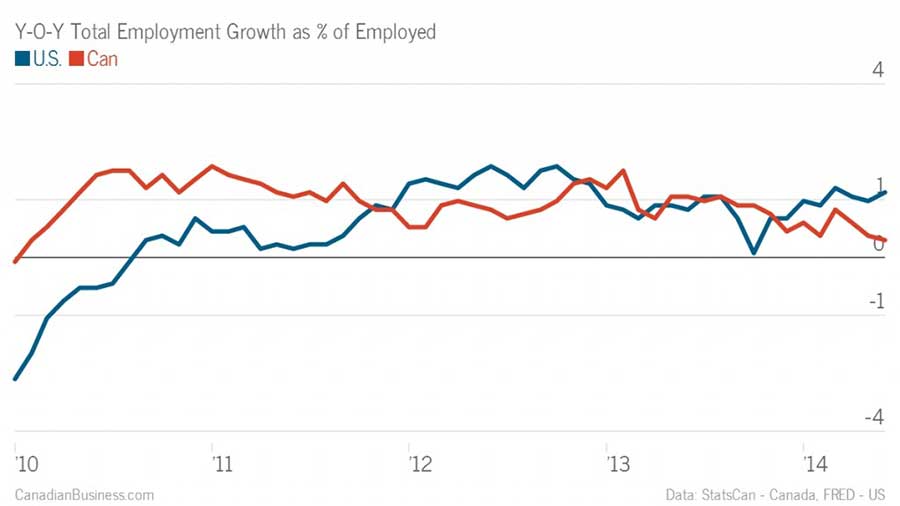
6 surprising skills Canada’s new jobs minister Pierre Poilievre brings to the table
Could this be one of the signs of the apocalypse? On Monday, Prime Minister Harper promoted Pierre Poilievre as Canada’s new jobs minister, replacing Jason Kenney at Employment and Social Development Canada; Kenney moves to Defence in a Cabinet shuffle following the resignation of John Baird last week: .@PierrePoilievre will now be Minister of Employment & […]
Could this be one of the signs of the apocalypse?
On Monday, Prime Minister Harper promoted Pierre Poilievre as Canada’s new jobs minister, replacing Jason Kenney at Employment and Social Development Canada; Kenney moves to Defence in a Cabinet shuffle following the resignation of John Baird last week:
.@PierrePoilievre will now be Minister of Employment & Social Development, Democratic Reform & NCC. #cdnpoli pic.twitter.com/u94irlBiYn
— Stephen Harper (@pmharper) February 9, 2015
I would like to thank #PMSH and the Canadian people for the opportunity to serve. It is an honour.
— Pierre Poilievre (@PierrePoilievre) February 9, 2015
What special talents does Poilievre bring to the job? Can he be trusted with a job that sees him oversee one-third of all Canadian government spending?
Here are six surprising skills you may not know Canada’s new jobs minister possesses:
1. Experience as a small business owner
Poilievre may seem a strange choice as Employment Minister, spending much of his adult life working as a Conservative MP. But did you know Poilievre was once a small business owner?
Before entering politics, Poilievre co-founded a short-lived company called 3D Contact Inc., providing robocall services for the Conservative Party of Canada.
2. An understanding of the value of hard work
On the same day the Government of Canada issued a formal apology for residential schools, Poilievre had the following to say about compensating survivors:
“Now along with this apology comes another $4 billion in compensation for those who partook in the residential schools over those years. Now, you know, some of us are starting to ask, ‘Are we really getting value for all of this money, and is more money really going to solve the problem? My view is that we need to engender the values of hard work and independence and self reliance. That’s the solution in the long run – more money will not solve it.”
Poilievre later issued an apology for his “hurtful” remarks.
3. Knowledgeable about the issues
What does Canada’s new minister for social development think the best social program is? And what’s the best anti-poverty program? The answer is a “strong family” and “a good job”:
“We understand that Canadian families are the solution. We understand that the best social program is a strong family and the best anti-poverty program is a good job.”
However, the website of Poilievre’s new ministry offers a treasure trove of information and data about the real causes of poverty. They include issues relating to age, gender, race, disability, mental illness and substance abuse problems, availability of affordable housing or location, to name only a few. He should google it some time.
4. Big, visionary ideas about changing how Canada works
Citing “freedom” and “human rights,” Poilievre once proposed abolishing existing labour laws and introducing new laws modelled after right-to-work laws in southern United States.
But it’s not clear Poilievre’s suggested changes to labour laws would even be constitutional. And as Osgoode Hall labour law professor David Doorey pointed out:
“If Poilievre doesn’t even know this most basic fact about labour law, then you have to wonder why this guy is dabbling in labour law amendments at all.”
5. An incorrect belief that Stephen Harper has the best job creation record in the world:
Canada’s new jobs minister once said Harper has the best job creation record in the advanced world:
“There are one million net new jobs in Canada since the depths of the recession. That is the best job creation record of any of the G7 countries.”
Of course, that’s not actually true.
As economist Mike Moffat points out, the United States is actually doing far better in terms of sheer number of jobs created. And when you compare employment growth as a percentage, the U.S is seeing job growth increasing while Canada’s job growth is in steady decline:

6. Proficiency in solving complicated problems with circular logic:
In 2013, Poilievre solved a complicated question sociologists had been grappling with for decades: What is the cause of terrorism?
“The root cause of terrorism,” Poilievre explained, “is terrorists.”
So what can we expect from Poilievre at the ministry of jobs? Will we learn that jobs are created by job creators? And is unemployment caused by the unemployed?
Photo: Facebook.
Our journalism is powered by readers like you.
We’re an award-winning non-profit news organization that covers topics like social and economic inequality, big business and labour, and right-wing extremism.
Help us build so we can bring to light stories that don’t get the attention they deserve from Canada’s big corporate media outlets.
Donate



